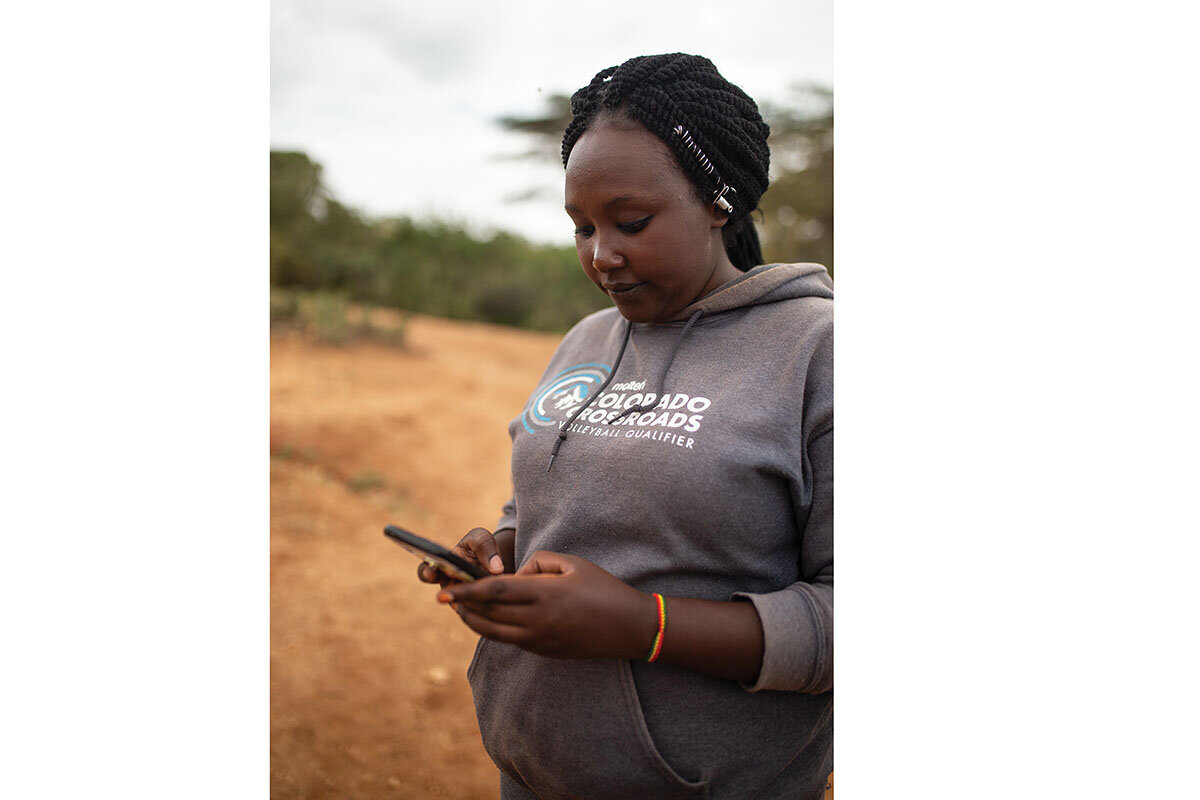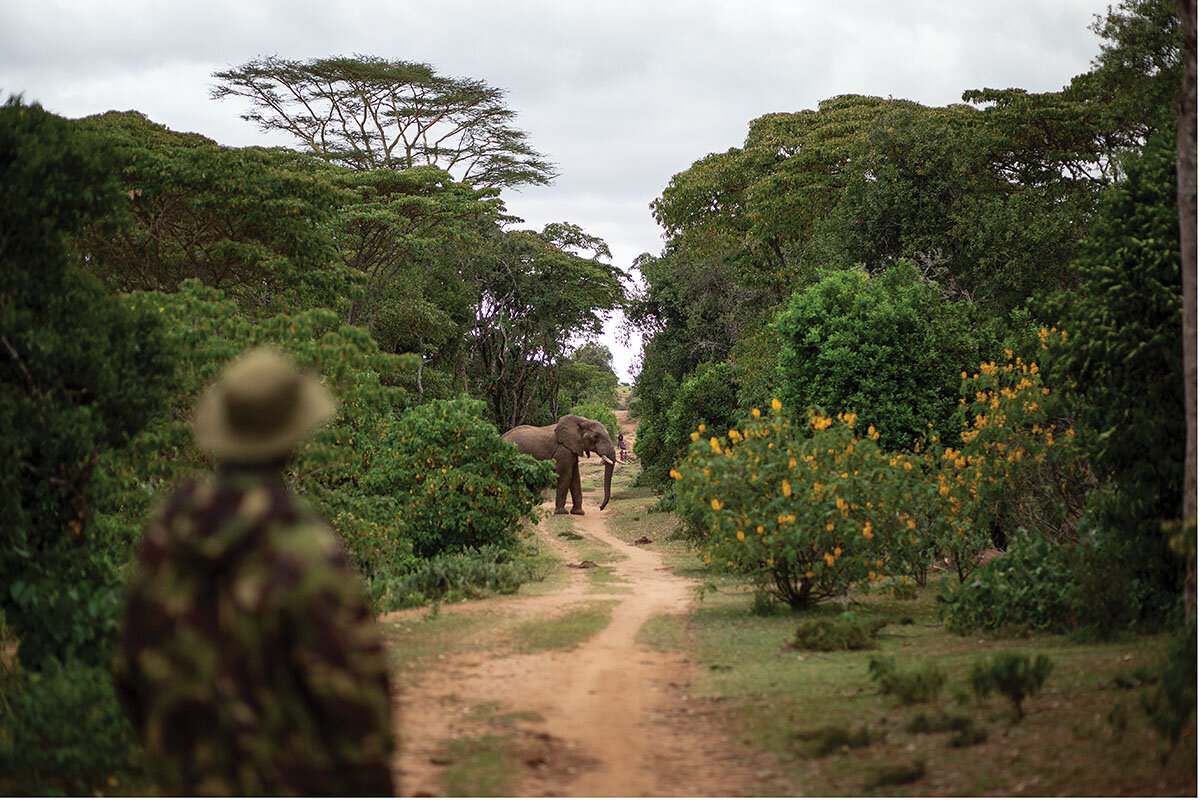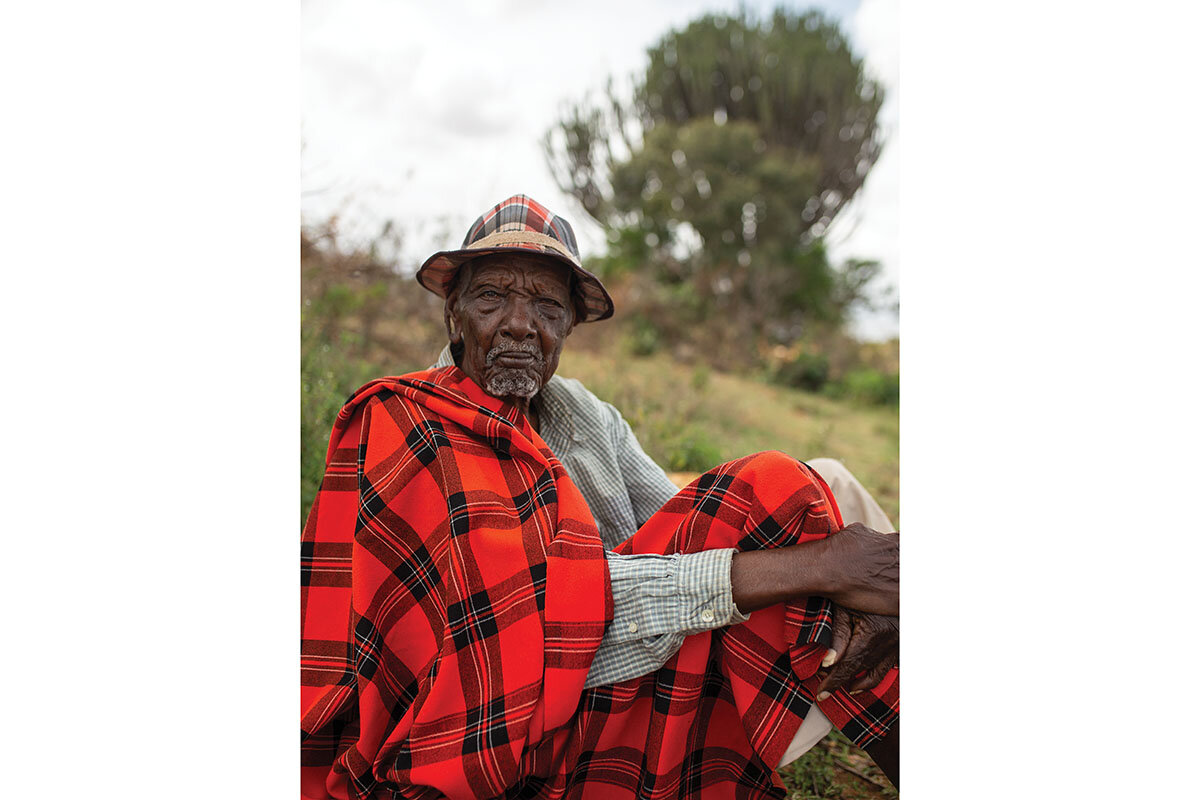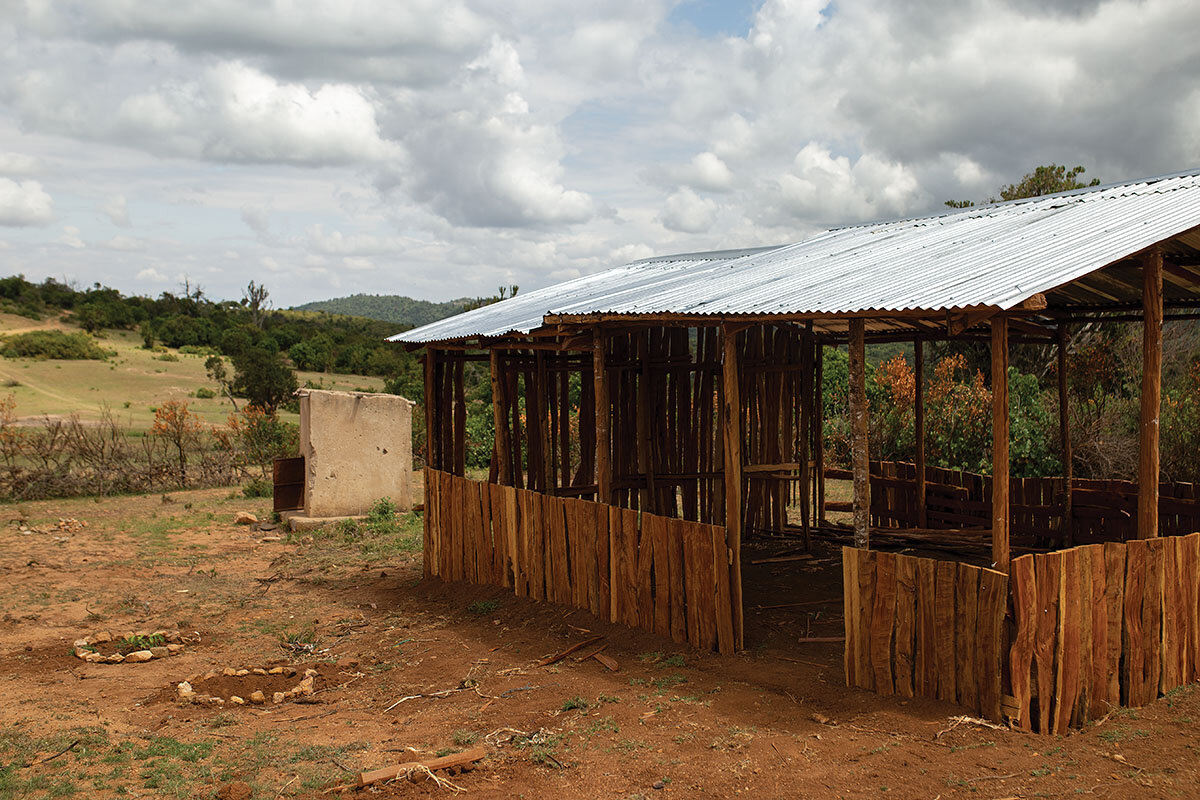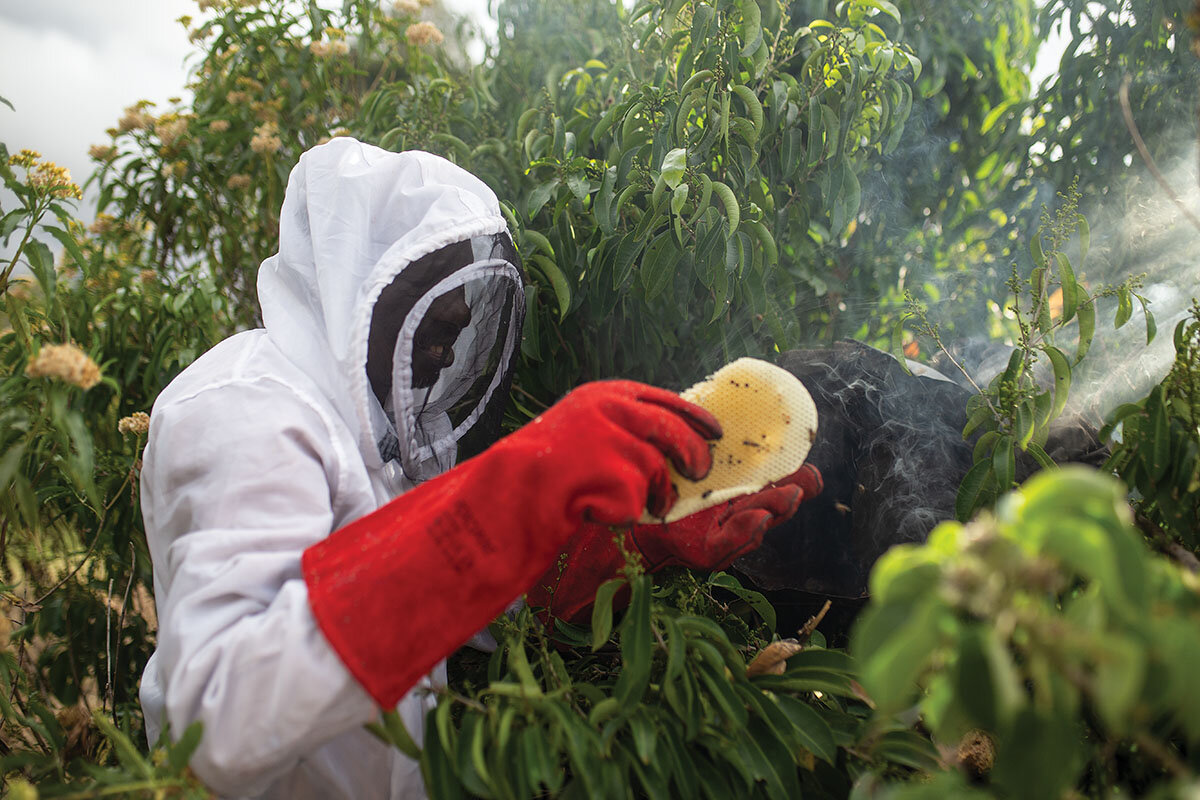In Pictures: Kenya’s forgotten Yaaku take back their language
Loading...
| Mukogodo Forest, Kenya
And then there were two.
UNESCO declared the Yaakunte language extinct in 2020, though Juliana Lorisho and her grandfather speak the Kenyan language fluently. The problem is, they’re the only ones.
Why We Wrote This
In a globalizing world, many minority languages are on the cusp of collapsing. But native speakers seek their revival anyway – not out of practicality, but rather out of dignity.
Undeterred by the odds stacked against her, Ms. Lorisho is working to build a school to revive the language. There are an estimated 4,000 ethnic Yaaku in Kenya, though the language took a hit a century ago when they were forced to integrate with the Maasai.
While formal education in Yaaku is still a long way off, Ms. Lorisho leads the “Revival of Yaaku Language” group chat on the messaging platform WhatsApp. Hovering around 33 participants, the group utilizes text and voice messages to learn new words. “It is a way for us to practice our culture and be differentiated from other communities we assimilated to,” she says.
In the meantime, she’ll keep strolling around Mukogodo, Kenya’s sole Indigenous-owned forest, and a place integral to the Yaaku identity. It’s there that Ms. Lorisho transcribes the stories of her grandfather, snacks on diiche fruit, and takes in the scenery of a land she’s quick to call “paradise.”
Click the “deep read” button above to view the full photo essay.
Grabbing the diiche, a prickly cactus bulb, away from my novice hands, Juliana Lorisho expertly uses a leafy branch to remove the spines before splitting the fruit open with her fingers. Unexpectedly bright juice splurts out, staining white fabric fuchsia. It tastes acerbic and fresh. The diiche is just one of the many edible fruits found within the Mukogodo, Kenya’s sole Indigenous-owned forest.
“It’s paradise, isn’t it,” Ms. Lorisho says, surveying the path lined with goldenrod-colored neeyna flowers.
This place is integral to Ms. Lorisho’s cultural identity. So are the words she uses to describe it. These are remnants of the Yaaku community, a tiny population of an estimated 4,000 in Kenya that was forced to assimilate with the Maasai ethnic group a century ago.
Why We Wrote This
In a globalizing world, many minority languages are on the cusp of collapsing. But native speakers seek their revival anyway – not out of practicality, but rather out of dignity.
Ms. Lorisho and her grandfather are the two remaining fluent speakers of Yaakunte. In a last-ditch effort to save the language of her ancestors, Ms. Lorisho left a stable accounting position in urban Nanyuki and returned to the edge of the Mukogodo Forest with a dream of founding a school.
“I have a great mission towards reviving Yaakunte because many Yaaku are interested in speaking the language,” she says.
She was still seeking funds when UNESCO declared Yaakunte extinct in August 2020. With renewed urgency, she sought an interim solution. She launched a “Revival of Yaaku Language” group on the encrypted messaging application WhatsApp.
Hovering around 33 participants, the group utilizes text and voice messages to learn new words. “It is a way for us to practice our culture and be differentiated from other communities we assimilated to,” she says.





